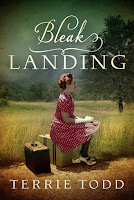By Terrie Todd
In the middle of the American Civil War, a baby girl was born to two fugitive slaves who had escaped to Canada via the Underground Railroad. William Isaac Rhue had fled the Miles plantation in Virginia and had met Jane Serena Lewis of Kentucky in their travels. Together, they settled at Buxton, Ontario where their daughter, Harriet (Hattie) was born in 1863 and where they would raise another fifteen children as well. Their faith-filled home was abundant in music and musical instruments.
Hattie attended a one-room school near the Rhue farm and attended piano lessons at the Elgin Settlement School. At 17, graduated from Chatham Collegiate Institute.
By 1881, the need for teachers for former slaves in the
southern United States was great. Encouraged by her pastor and her mother,
18-year-old Hattie traveled to Kentucky where she taught children and adults
to read and write. Among her students was a man named Millard Hatchett, whom
she married in 1892. Hattie continued teaching as three daughters and one son
were born to them. In 1904, the family returned to North Buxton.
Tragically, all three of their daughters became ill and
died. Grief-stricken, Hattie turned to her music and her faith for consolation.
Although she’d obtained a music-teaching certificate, she could not find work,
due to racism and sexism. Teaching jobs were closed to married women. Despite
not being hired as an organist in a white church, Hattie organized a choir for
white churches. She also gave free music lessons out of her home and became
much sought after in helping students prepare for recitals and music
competitions.
Hattie Hatchett, Canadian Federation of University Women Facebook page
Over the years, Hattie composed many original songs and became a popular performer for church, conferences, and community events. Her eclectic repertoire included classical, popular, spirituals, hymns, and children’s songs. Sadly, most of her compositions were lost in various fires over the years.
She did copyright three songs: two hymns called Jesus, Tender Shepherd Lead Us and That Land Beyond the Sky, and one song that would become increasingly popular as it was written specifically for Canadian soldiers during World War I.
 |
| Black Construction Battalion, RCI Radio Canada |
That Sacred Spot, from 1915, was chosen by Canon Frederick G. Scott, senior chaplain of the 1st Canadian Division and a poet himself, as the official marching song of the troops. It made the soldiers think of home. Its title refers to the spot where a soldier might die as being sacred to God. The song was born out of the pain of Hattie’s own grief for her deceased children. For several years, it was sung by school children on Remembrance Day.
“In foreign fields apart or in a row
There lies a soldier’s lonely grave so low.
Tremendous cost wherever it may be
Keep that Sacred Spot in living memory.”
Though many soldiers knew the song well, its origins remained unknown to most. That such an important piece of music was composed by a Black woman is a significant piece of Canadian history worth remembering.
Hattie Rhue Hatchett outlived her children and her husband, dying at the age of 94 in 1958.
Sources:
100 Canadian Heroines: Famous and Forgotten Faces, by Merna Forster, Dundurn Press, 2004
The Canadian Encyclopedia
In the dead-end Canadian town of Bleak Landing, Irish immigrant Bridget O’Sullivan lives in a shanty and dreams of another life as the Great Depression rages. Routinely beaten by her father and bullied by schoolmate Victor Harrison, the fiery redhead vows to run away and never return. Desiring to become anyone other than Bridget O’Sullivan, she never dreams the day will come when she must prove that’s exactly who she is—or that the one person who can vouch for her is her old nemesis, Victor. Can he also prove he’s a changed man worthy of her forgiveness and love?
Terrie Todd’s novels are set mostly in Manitoba, Canada where
she lives with her husband, Jon, in Portage la Prairie. They have three adult children and five grandsons. Her next novel, Even If We Cry, releases in November 2024.
Follow Terrie here:
Quarterly Newsletter Sign-up



Thank you for continuing to highlight these women. I love the stories of their lives.
ReplyDelete